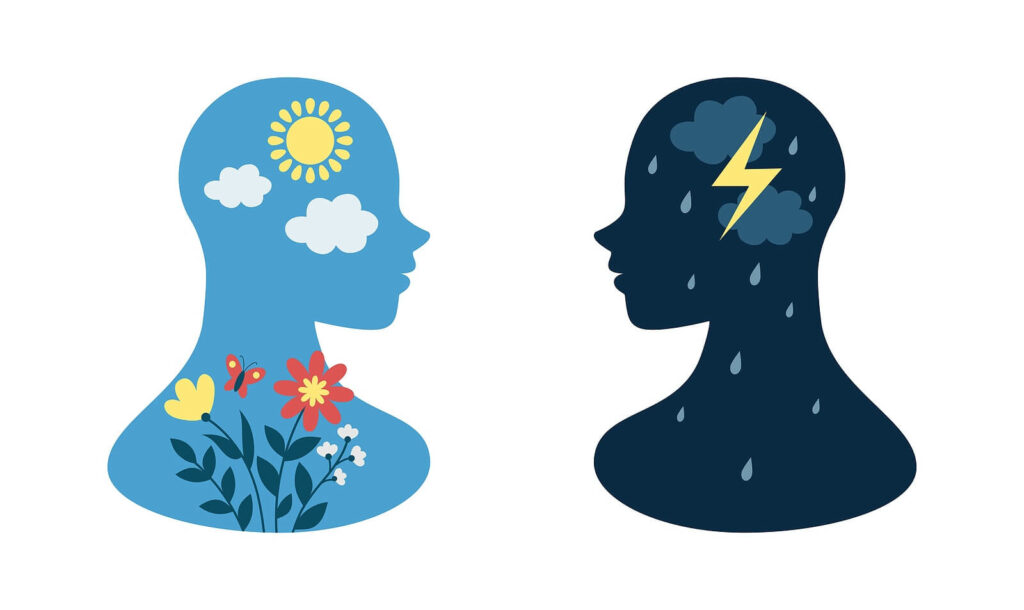There are many different types of therapeutic approaches to aid in someone’s wellness journey. It is essential to explore therapeutic approaches that empower you and feel like a good fit. Internal Family Systems (IFS) is one approach that recognizes the complexity of our inner world. By understanding and embracing our internal family, we can cultivate self-energy and become self-led. In this blog post, we will delve into the essence of IFS, understand its key components, and explore five effective ways to increase self-energy and foster self-leadership.

Understanding Internal Family Systems (IFS):
IFS is a therapeutic model developed by Dr. Richard Schwartz that acknowledges the multiplicity of our minds. It views the mind as a system comprising different parts, each with its unique desires, emotions, beliefs, and motivations. These parts can be categorized into three main types: exiles, managers, and firefighters. The ultimate goal of IFS is to help individuals cultivate self-energy—the compassionate and wise core of their being—and become the leader of their internal family.
These parts can be categorized into three main types:
- a. Exiles: Exiles are the parts that carry emotional pain, trauma, and unmet needs from past experiences. They often hold memories, beliefs, and emotions that were overwhelming or unbearable at the time of the initial experience.
- b. Managers: Managers are the proactive parts that work tirelessly to ensure our safety and protect us from experiencing pain. They strive to maintain control, avoid vulnerability, and handle day-to-day responsibilities.
- c. Firefighters: Firefighters are the parts that activate when the exiles become triggered or overwhelmed. They respond impulsively and seek to distract, numb, or soothe the pain through addictive behaviors, such as substance abuse, overeating, or self-harming.
Understanding Self, Self Leadership and Transformation.
- Self: Self, is the core essence within us, and represents our true nature. It is characterized by qualities such as compassion, curiosity, and wisdom. Self is capable of providing leadership and healing to the various parts within our internal family.
- Self-Leadership: The goal of IFS is to foster self-leadership, where the Self takes on the role of leading and harmonizing the internal family. When Self is in the driver’s seat, it can establish a trusting and compassionate relationship with the parts, helping them heal, transform, and integrate.

Increasing Self-Energy: Pathways to Self-Leadership
So, now we are going to provide some ways a person can increase their Self-energy.
1. Cultivating Self-awareness.
Self-awareness is the foundation of self-leadership. By developing a deep understanding of our internal landscape, we can identify different parts and their roles within us. For example, practices such as journaling, meditation, or therapy provide safe spaces for exploration and self-reflection. Through observation with curiosity and compassion, we strengthen our connection with the self, paving the way for self-leadership.
2. Embracing Radical Acceptance.
IFS emphasizes the importance of embracing all parts of ourselves with unconditional acceptance. Instead of judging or suppressing certain parts, we foster an attitude of curiosity and empathy towards them. By accepting and befriending our parts, even the most wounded or challenging ones, we create a harmonious internal environment conducive to self-leadership.
3. Developing a Dialogue with Parts.
Engaging in a compassionate dialogue with our parts is a vital aspect of IFS. It involves acknowledging and listening to each part’s needs and concerns, fostering trust and cooperation within our internal family. Actively inviting parts to express themselves and understanding their intentions facilitates healing and integration. Through open and empathetic communication, we facilitate the emergence of self-energy.
4. Practicing Self-Care and Self-Compassion.

Self-energy thrives in an environment of self-care and self-compassion. Engaging in activities that nurture our physical, emotional, and spiritual well-being replenishes our self-energy reserves. Prioritizing our needs, engaging in hobbies, seeking support from loved ones, or practicing mindfulness demonstrates self-leadership. By being kind and gentle with ourselves, we create a foundation for sustained mental health.
5. Seeking Professional Support.
While self-leadership is a personal journey, seeking guidance from a qualified IFS therapist can provide invaluable support. A skilled IFS therapist helps navigate our internal landscape, uncover hidden patterns, and facilitate healing and integration of our parts. An IFS therapist is an Observer to the system and can equip you with practical strategies for self-leadership. If you’re interested in beginning your healing journey, reach out to Kind Mind Psychology.
Ready to Begin Your Journey to Self-Leadership? IFS Therapy in Charlotte, NC
Discovering your Self-energy and cultivating harmony within your internal family is a powerful step toward healing and transformation. At Kind Mind Psychology, we’re here to guide you through this journey using Internal Family Systems (IFS) therapy. Whether you’re seeking deeper self-awareness, healing from past wounds, or a path to self-leadership, our compassionate therapists are ready to support you.
- Contact us here!
- Read more about IFS therapy by diving into our blogs.
- Explore how IFS can empower you to lead your life with curiosity, compassion, and confidence.
Other Services We Offer in New York and North Carolina
Beyond IFS therapy, we offer a variety of supportive options to meet your needs. For those in the LGBTQIA+ community, we offer affirming and compassionate LGBTQ+ therapy, where you can explore and embrace your identity. We also provide couples therapy to help partners build stronger, more meaningful relationships. For individuals healing from trauma, our specialized EMDR and trauma therapy offer pathways to deep emotional healing and resilience. No matter what you’re facing, we’re here to support your growth and well-being.

